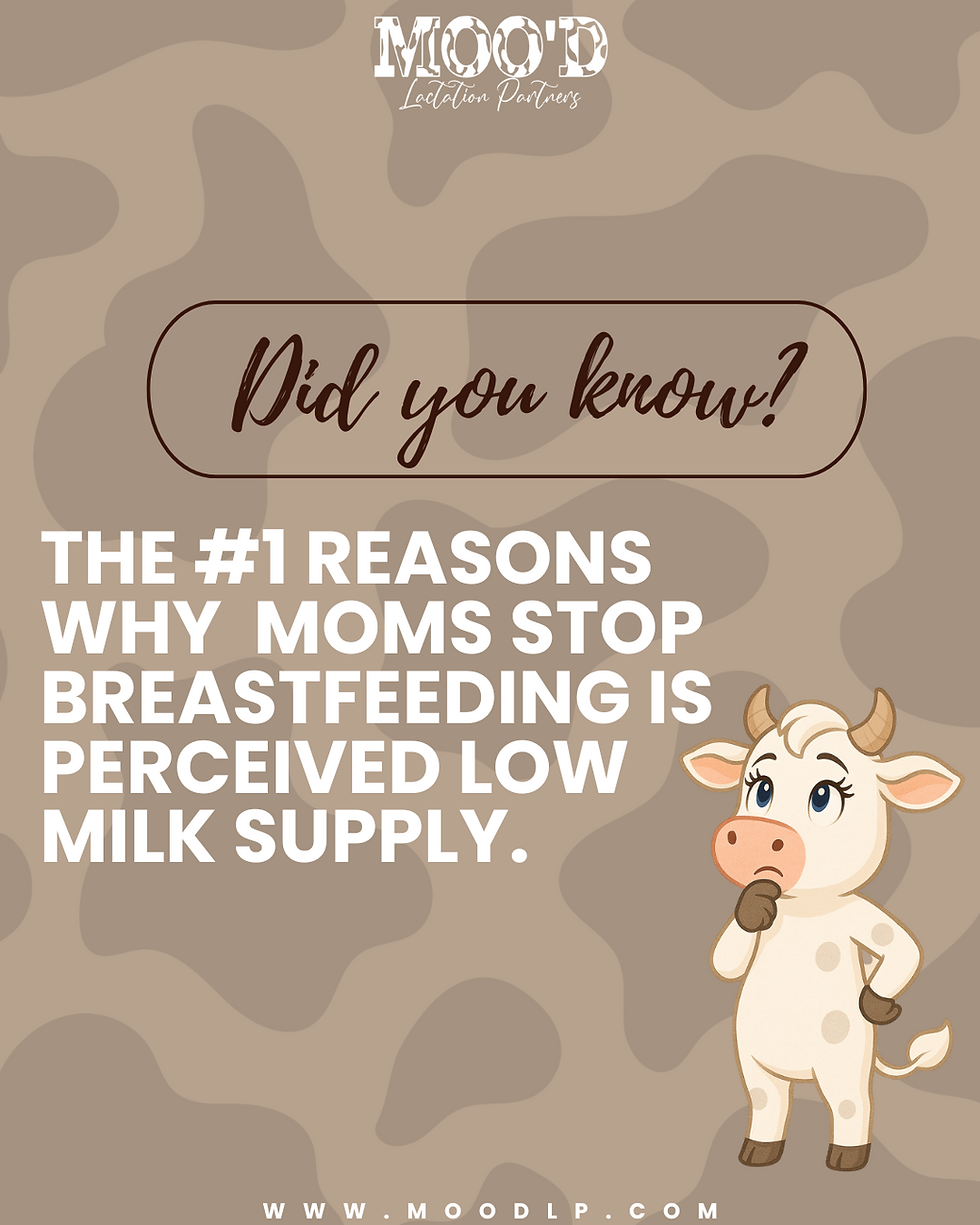Am I Making Enough Milk? Understanding the Fear of Low Supply in Breastfeeding
- Paisley Lucas

- Jul 18, 2025
- 2 min read

If you’ve ever wondered, “Is my baby getting enough milk?”—you’re not alone. This is one of the most common worries for breastfeeding moms, and it can feel overwhelming. The fear of not making enough milk, known as perceived insufficient milk supply (PIMS), can creep in even when everything is going perfectly fine. Let’s talk about it.
What Is Perceived Insufficient Milk Supply?
PIMS is when you feel like your body isn’t making enough milk to feed your baby, even though most of the time, it actually is. It’s not your fault for feeling this way—there’s a lot of misinformation and unrealistic expectations out there that can make us second-guess ourselves.
Why Do We Feel This Way?
There are so many reasons moms feel like their milk isn’t enough:
• Your baby is fussy: Babies cry for lots of reasons—tiredness, wanting to be held, gas—and it’s not always about hunger.
• They’re feeding all the time: Cluster feeding is totally normal (especially during growth spurts), but it can make you feel like your baby is never satisfied.
• Soft breasts = no milk: Nope! Soft breasts just mean your milk supply has regulated, not that it’s gone.
• Social media comparisons: Seeing moms post full bottles of milk online can make you feel like you’re not measuring up. But remember—breastfeeding isn’t about how much you pump; it’s about how your baby grows.
How to Know Your Baby Is Getting Enough?
Instead of doubting yourself, look for these reassuring signs that your baby is thriving:
• Diaper output: 6 or more wet diapers and 3 or more poopy diapers each day after the first week.
• Weight gain: Your baby is growing steadily when you go for checkups.
• Contentment: Even if it’s brief, your baby has moments of calm and seems satisfied after feedings.
You’re doing better than you think!
What Can You Do If You’re Worried?
1. Reach Out for Support: You don’t have to do this alone. Talk to a lactation professional, your pediatrician, or a trusted breastfeeding support group. They can help you sort out facts from fears.
2. Trust Your Baby, Not the Pump: Pumping doesn’t always reflect how much milk you’re making. Babies are much better at getting milk than any pump out there.
3. Take Care of Yourself: Stress, lack of sleep, and dehydration can impact how you feel about breastfeeding. Make time to eat, drink, and rest (I know—it’s easier said than done).
4. Ask Questions: Breastfeeding can be a steep learning curve. Asking for help doesn’t mean you’re failing; it means you’re committed.
It’s Okay to Feel Unsure
Breastfeeding is a journey with ups and downs, and it’s normal to feel unsure sometimes. You don’t have to have it all figured out, and you don’t have to be perfect. Your baby loves you, and you’re enough just as you are.
If you’re feeling overwhelmed, we’re here to help. At Mood Lactation Partners, we offer judgment-free support to guide you through the hard days and celebrate the victories with you. You don’t have to do this alone—we’re in it together.






Comments